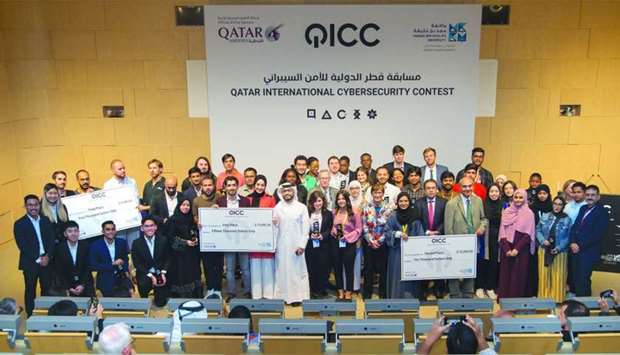A complex and dynamic array of cybersecurity threats provided the context for Hamad Bin Khalifa University’s (HBKU) first Qatar International Cybersecurity Contest (QICC), which took place recently.
Organised in partnership with the competition’s Official Airline Sponsor, Qatar Airways, the event also highlighted ongoing efforts to protect critical information and networks from cyber threats.
Over the course of three days, a total of 130 academics, experts, and students took part in a contest organised by five of HBKU’s colleges. Among those, there were 45 Qatar-based and 85 international participants from over 30 countries. All contributed to interactive sessions designed specifically to tackle existing cyber vulnerabilities and encourage future innovation. Participants also benefited from expert discussions and workshops that considered emerging threats and sustainable technological development in the area of cybersecurity.
All HBKU contributions to the QICC were designed with synergies between cybersecurity issues and key research interests in mind. The College of Islamic Studies’ Empower Cyber-Akhlaq Competition encouraged attendees to consider cyberspace through the lens of ethics and morality. Other competitions included the College of Humanities and Social Sciences’ Fake News Detection Contest, while the College of Science and Engineering provided opportunities to engage in advanced ethical hacking research activities as part of the Qatar International Hacking Contest. Teams also went head-to-head in the College of Law’s Cybersecurity Moot Competition, as well as the College of Health and Life Sciences’ Genomics Cybersecurity Contest, which emphasized the importance of securing genetic data.
Speaking after the event, Dr Roberto Di Pietro, QICC committee chair, said: “We’re delighted that the first Qatar International Cybersecurity Contest was well-received by all participants. Our activities amply demonstrated that cyber threats cut across all sectors of business and society and require solutions form the government, industry, and academia, that are agile and innovative. The world also needs academics, experts, and policymakers capable of understanding the complex and multidisciplinary aspects of today’s cybersecurity landscape, in order to develop appropriate responses. To this end, we’re confident that we provided contestants with tools and ample food-for-thought for the challenges that lie ahead.”
The QICC provides the backdrop against which HBKU continues to address issues of national, regional, and global relevance.



